Why the NZ Right have to denigrate & attack local council

‘Serious shake-up’ of local government imminent
The coalition is set to announce a major shake-up of local government which will spell the end of regional councils.
When Māori righteously sought their property rights interest in water (after John Key sold off 49% of our hydro generated electricity industry), the resulting 3 Waters legislation was decried as ‘da maaaarres stealing da water’ and it was framed as a disgraceful abuse of democracy by seizing water assets, when it was nothing of the sort.
Contrast that hysterical response to Māori having their water interests acknowledged with news this week that National will simply scrap all Regional Councils!
When the Right punch local democracy in the face and shred our regional powers, no one says anything.
But when Māori seek legal redress to their water interests being ignored, suddenly it’s the end of the WestMinister Democratic tradition and the obliteration of Western Civilization as we know it.
Just so I have this straight.
When the Right crush local democracy and rob it of assets, that’s good and dandy?
But When Māori ask for their property rights to be respected and their input sought, that’s an existential race war against Cracker?
Glad we sorted that out.
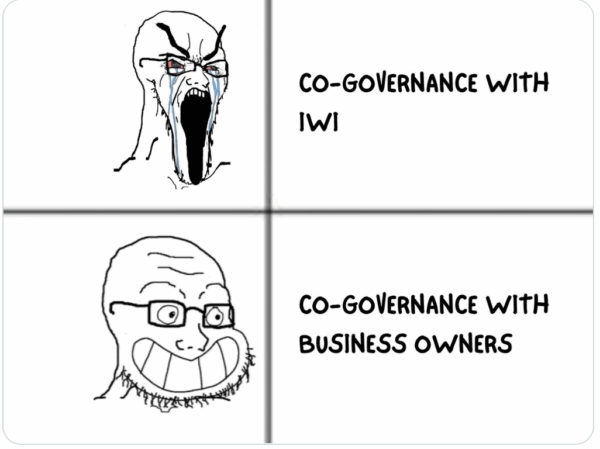
Of course National and Taxpayers’ Union astroturf hate groups are targeting local councils now, their privatisation agenda requires local democracy to be wound back so that their developer mates can exploit the deregulated environment.
There is such a disconnect between the environmental realities of climate change adaptation…
Communities across the top of the South Island are dealing with a mega clean-up task ahead, following last week’s deluge.
Homes in Nelson, Tasman and Marlborough have been let uninhabitable, roads are damaged and properties have been inundated with flood waters.
Rural Support Trust Top of the South chairperson Richard Kempthorne said the destruction was significant.
“The damage is looking huge, so there are a lot of people, particularly on the Motueka, but also the Wai-iti River where the river has gone wide and very high and caused a lot of damage.”
…and this Government’s ideological belief that cutting back the State allows the market to set in and do it cheaper.
To be able to do that requires local council and regional councils to be over run with Central Government demands.
It’s hilarious that National screams ‘decentralisation’ when in reality they want the excuse of decentralisation to not fund things, but they still want the power to make demands!
This is a rigged capitalism for the mega wealthy but because so many Kiwis are still clinging to their post-covid bitterness, they are prepared to become salves to corporations just to own the woke.
This is less about political culture now, and more to do with emotional masochism.
The vast number of Kiwis do not known that our local democracy has been privatised to just 2 private companies, it is NOT run by the Electoral Commission!
-
Election Services – an Auckland-based company that runs elections for Auckland Council and several other North Island councils.
-
electionz.com – a Christchurch-based company that provides election services (including postal voting and online voting systems) for many South Island and some North Island councils.
Look at the impact of privatising local elections over that time on participation rates:
-
1992–1998: turnout in the 50–55% range.
-
2001 (Local Electoral Act introduced, outsourcing becoming the norm): turnout dropped to ~47%.
-
2004–2010: around 43–49%.
-
2013–2019: fell further to 39–42%.
-
2022: hit a modern low of ~36% nationwide.
Ever since we privatised our local elections, turn out has crashed, and that’s because these two private companies don’t care about the participation rate, they care about making money on their contracts!
Last Auckland Mayoralty election in 2022, there were barely a dozen polling booths where you could cast a special vote if you weren’t enrolled. Many poor people and renters bounce from house to house to house and their instability makes it difficult to update election details to vote.
12 booths for a city with 1.2million.
That is the sort of voter suppression that would make the Republicans blush.
By outsourcing our local elections to private companies, we have destroyed our participation rates, it is time to remove all contracts from these two companies and take the elections back into the Electoral Commission and run them with the same level of funding we run National Elections!
When you consider the mass mistakes made in this current electoral cycle…
Hastings voting booklet blunder leaves 27 candidates’ profiles missing
…and the pitiful turn out to date, we must save our local democracy from being hijacked by Right Wing Hate groups and focus on the common good.
More participation guarantees that quality of democracy, less allows Right Wing Hate groups to dominate.

Bryce Edwards makes the point that Local Elections are utterly dominated by the polluter industry using astroturf organisations to trick you into voting for them…
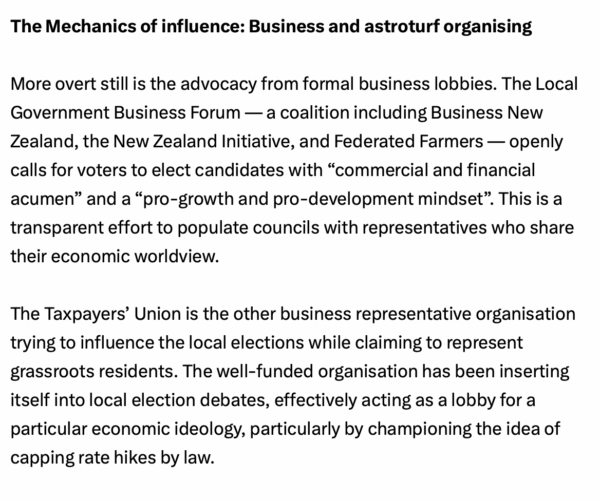
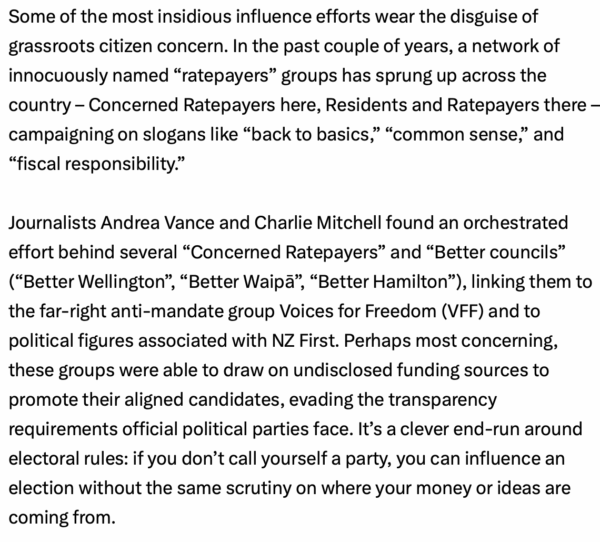
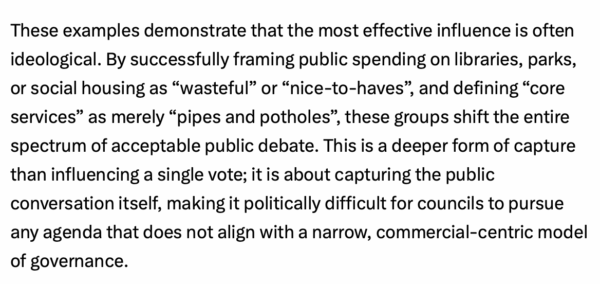
…people don’t comprehend that the rates cap, Groundswell, anti-environmental measures and small Government morality is all part of a cleverly constructed con job to trick you into agreeing to their agenda while pretending to respond to your anger that they whip up!
The Left simply have none of the sophistication (or funding) of these astroturf organisations and that’s why and how they outmanoeuvre us in elections.
ACT having rich culture war arseholes self fund their own campaigns is perfect branding for their niche of bigotry while Taxpayers’ Union give most bang for Federated Farmer, NZ Initiative and Hobsons Pledge buck.
The truth is that shutting down the Regional Councils is a power grab by National…
The real regional reform hidden behind scrapping of councils
The Government’s bombshell announcement aimed at removing the country’s 11 regional councils has been accompanied by a discussion document, which is the first that the regional councils have seen of the proposals.
I don’t entirely disagree with the proposition that changes would be beneficial. I spent considerable time and effort as mayor seeking to have the public transport function transferred from Environment Canterbury to the councils on the ground. Councils are much better connected to our communities to consult on bus routes and ensure services are reliable and affordable. There are other functions where collaborative models could produce better results as well.
Regional councils are in essence environmental regulators so not really within the local government hierarchy.
But this 30-page document is an insult to those of us who would appreciate debating the issues. Where is the evidence that sits behind the proposals rather than anecdotes?
This all leads me to believe that the scrapping of regional councils is a red herring. As I have said before, when central government turns its sights on councils I can’t help but feel it is a diversionary tactic. We are being invited to look the other way. The real issue is the proposed regional reorganisation that would follow, and which would be subject to total government control with the minister of local government given the final say. The statutory criteria scream amalgamation especially when most of the examples refer to amalgamations or shared services.
It feels like this is another government moaning about the number of councils instead of talking about what roles would be best performed at what level.
…Bernard Hickey is equally scathing…
More magical thinking borne of 1989
- RMA Reform, Housing and Infrastructure Minister Chris Bishop announcedplans last night to abolish regional councils to “simplify how we plan our cities and regions and make it far easier to build the future New Zealanders deserve.”
- But in my view, it’s another attempt to try to squeeze out cost savings to pay for new and existing infrastructure for ongoing strong population growth, when the real problem is a self-imposed limit on using the Crown’s balance sheet to do it, while also pursuing strong population growth to juice GDP and house prices.
- Bishop described the reforms as the biggest since 1989, but they’re actually another attempt to make the 1989 reforms work. Those reforms were based around restricting the size of Government and it’s gross debt to 30% of GDP.
- That self-imposed and now-unnecessary restriction may have allowed proper maintenance of infrastructure without population growth in the first decade after 1989, but it hasn’t worked for the last 20 years because population growth driven by migration has been closer to 1.5-2%.
…this is a power grab to gerrymander the voting process in favour of rural communities at the cost of urban communities, it’s as simple as that!
As for the Treaty, huge questions remain…
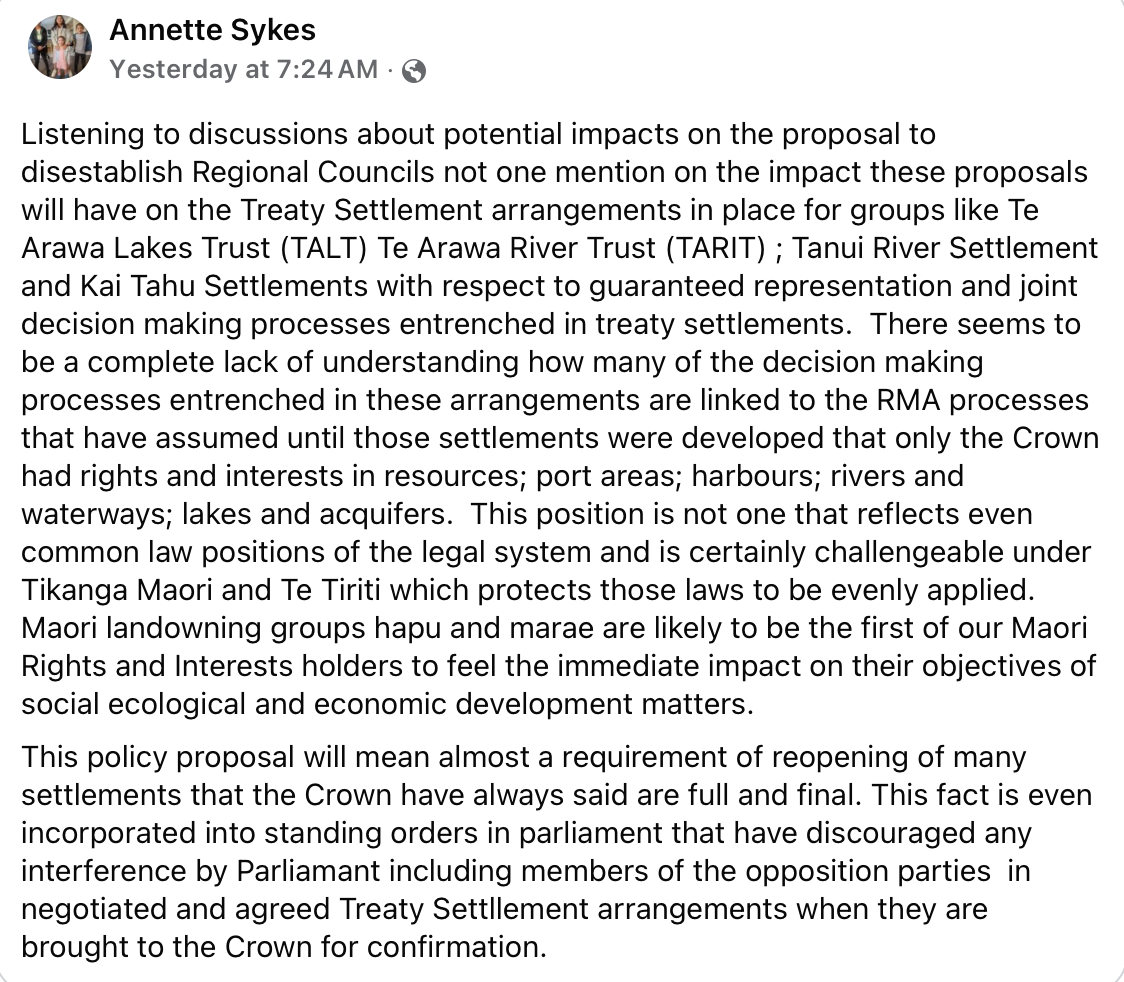
…these changes are for the developers, the polluters and the Rural Community over Urban.
National intend to rig the game so that the Rural Sector always outvote urban concerns.
Increasingly having independent opinion in a mainstream media environment which mostly echo one another has become more important than ever, so if you value having an independent voice – please donate here.

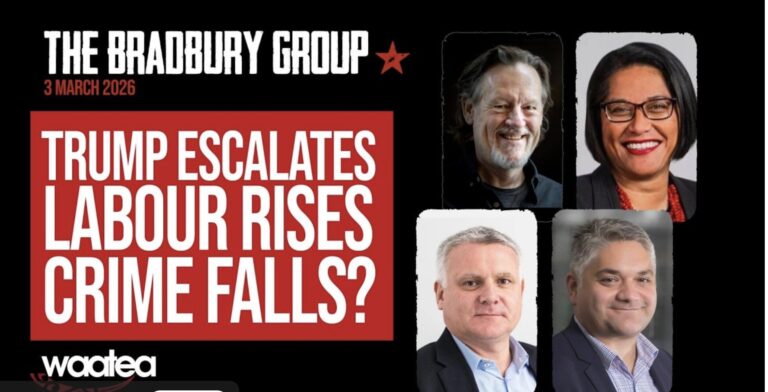
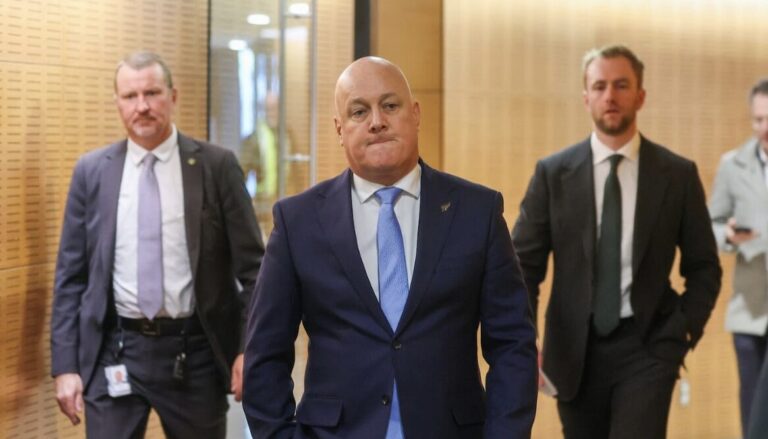
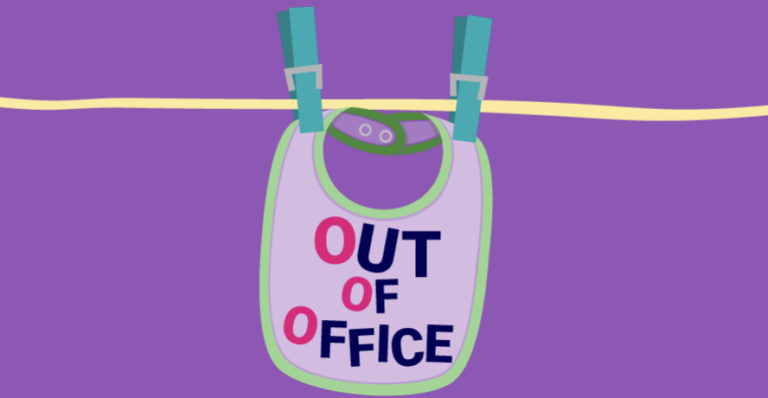

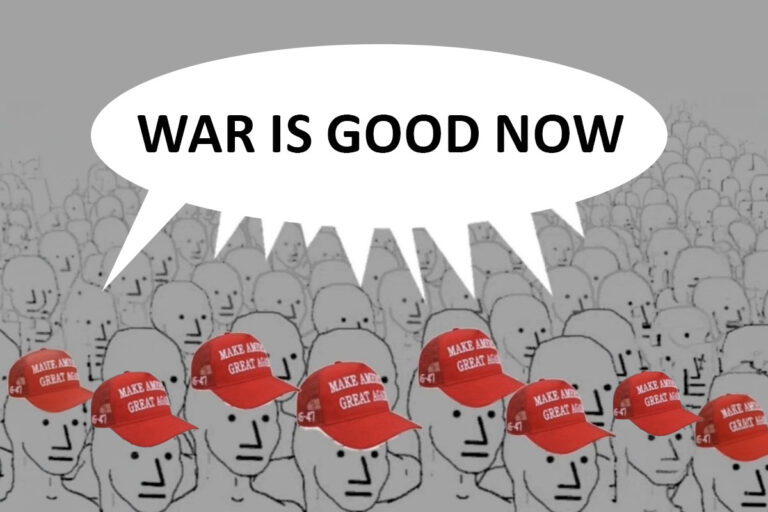
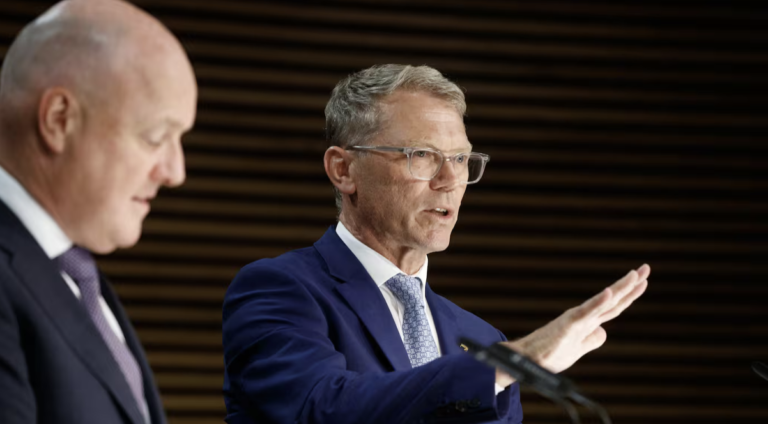
Great article. A diversionary tactic as noted above. A big noisy distraction centered around ‘environmental issues’ as the culture war rage bait clickety, click.
The NZ economy is the thing to watch – it may not jump back into recovery in 2026 and National will need as many culture battles as they can come up with to win the election.
My thoughts are that the central government knows that the regional councils employ people who know the consequences of the environment-damaging changes they want to make, so they have decided that abolishing them is the easiest way to a quick private profit for their supporters. Like you say there should be a mass public outrage at these proposals but the mass media who are more interested in telling people what to think than reporting real facts don’t share our values.
“These changes are for the developers, the polluters and the Rural Community over Urban.
National intend to rig the game so that the Rural Sector always outvote urban concerns”.
Absolutely correct Martyn hence why Ngai Tahu have gone straight to court.
This is a major overthrow bigger than the 2016 sacking of environment Canterbury to allow increased dairying on the Canterbury plains.
Oh well Maori needs to go back to the government to resettle and relitigate their treaty pay-outs and ask for the true cost to be paid instead of the pittance these Iwi leaders agreed too. This government plan is not for NZers even pakeha who believe that kicking Maori down is a good thing will in fact create more animosity towards them by Maori who already face discrimination factors socially, economically, politically. Sometimes it’s best not to pick a fight with people who have nothing to lose
Free Aotearoa